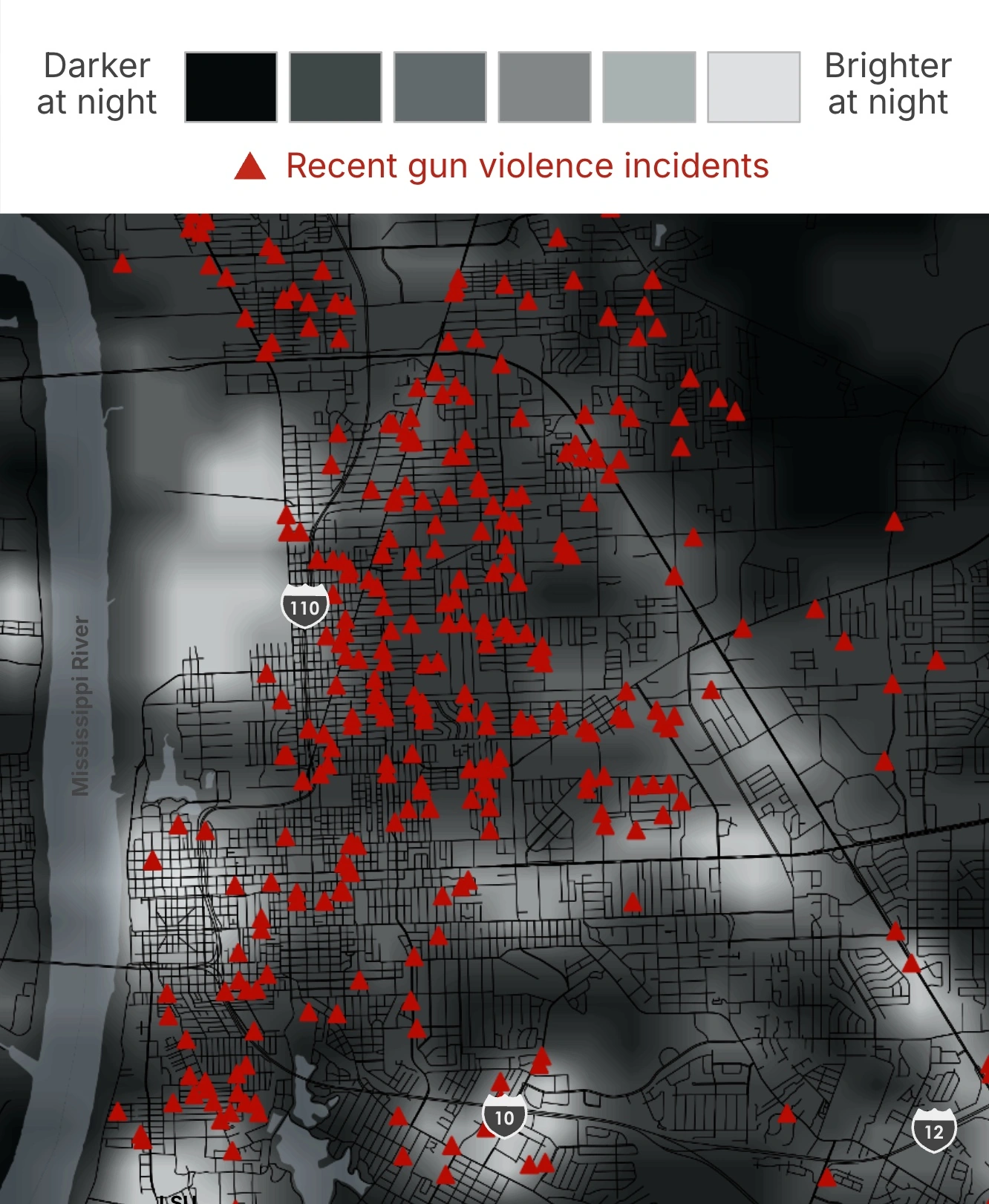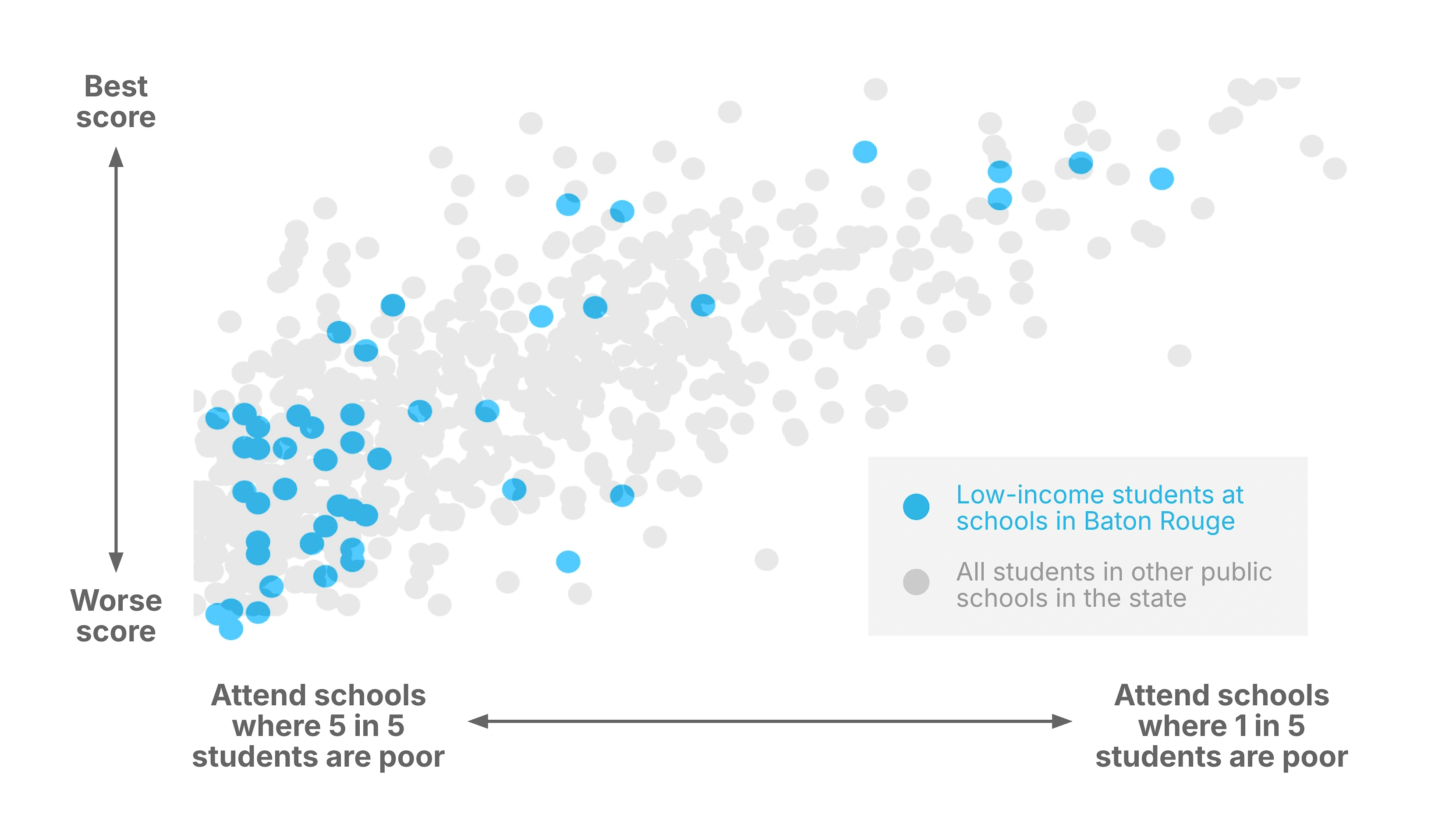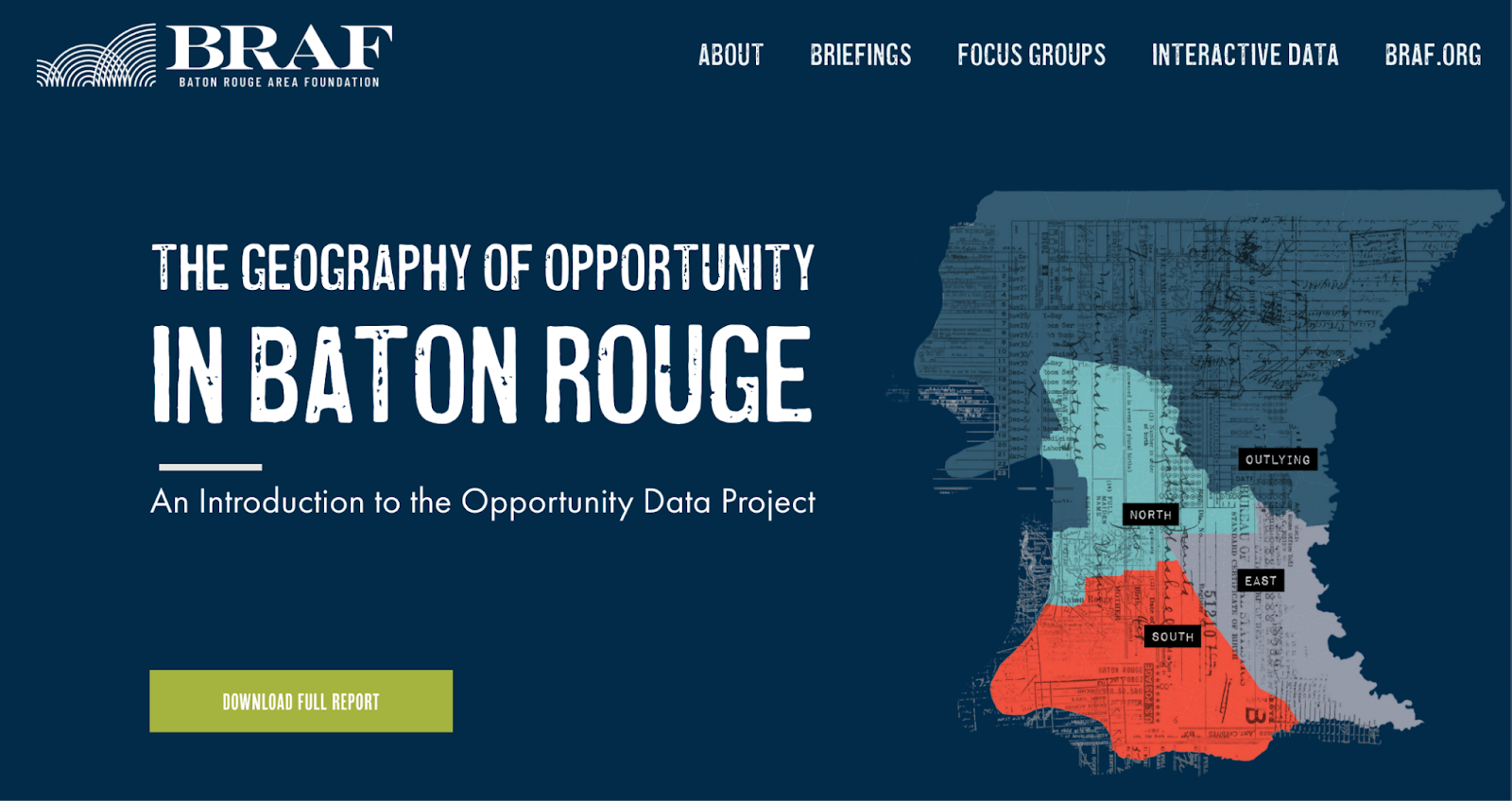
A local partnership to find solutions for transformative change.
Economic mobility has been hard to find in many Baton Rouge neighborhoods. People who grew up in some areas of the city had some of the highest incarceration rates and lowest incomes in the nation during the early 2010s.
The Baton Rouge Area Foundation is working to ensure that this history is not repeated. Its leaders’ goal is to use new data sources and more advanced analytical tools to increase opportunity for all city residents. They invited our team to help.
Our work together focuses on six areas:
Our Partnership. Community feedback indicated that neighborhood safety should be the first priority. Our team used place-based analyses to uncover the specific causes of local violence. Then, we identified evidence-based solutions to match each problem.
For example, satellite data showed that neighborhoods with frequent shootings were very dark at night. We helped the foundation’s leaders use evidence from other communities to advocate for more lighting in these areas. Over 400 new streetlights are now illuminating these neighborhoods.

Our next project focused on improving education. We studied more than 100,000 local children and used peer comparison analyses to identify strategies to help low-income students succeed. This showed that when these students attend mixed-income schools they earn much better scores in reading and math.

Other partnership initiatives include actionable research to boost local life expectancy, improve pre-K instruction, and empower low-income families to increase their incomes. Each followed a three-step process.
Collaborative investigation. Common Good Labs researchers used new data sources and advanced analyses to identify the causes of local problems and potential solutions. Then, we worked with the foundation’s team to better understand the deepest drivers of each issue.
Partnership building. Next, we shared what we’ve learned. This includes presentations by foundation staff and Common Good Labs at public briefings as well as workshops with elected officials. We also co-published reports summarizing our findings that have also been covered by the city’s newspaper and on local news.
Solution development. Our policy experts supported foundation leaders as they convened community leaders and residents to create new programs and initiatives. Together, these partnerships are translating our collaborative findings into action that increases local opportunity.
As this work continues, a model is taking shape that translates cutting-edge research into community progress.
